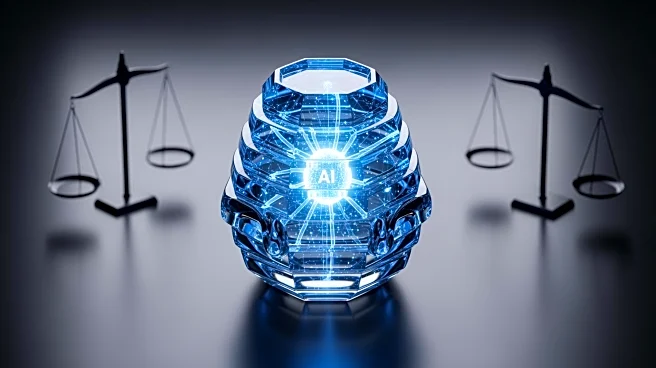What's Happening?
YouTube has launched a new AI age verification system designed to automatically apply restrictions to accounts if the user is determined to be under 18 years old. This 'age-estimation model' uses artificial intelligence to assess the likelihood of a user being underage based on factors such as account activity and longevity, rather than relying solely on the birthdate provided by the user. The restrictions include showing non-personalized ads, enabling digital wellbeing tools by default, and blocking access to age-restricted videos. Users who believe the AI's assessment is incorrect can verify their age through government ID, selfie, or credit card. The initiative aims to ensure that teens receive age-appropriate experiences and protections on the platform.
Why It's Important?
The implementation of AI-driven age verification by YouTube marks a significant step in enhancing online safety for minors. By automatically applying restrictions, YouTube aims to protect young users from potentially harmful content and ensure a safer browsing experience. This move reflects growing concerns about digital privacy and the need for platforms to safeguard vulnerable users. However, the requirement for users to verify their age through personal identification raises privacy concerns, as it could expose them to risks such as data leaks and identity theft. The system's reliance on AI also highlights ongoing debates about the accuracy and oversight of automated moderation tools.
What's Next?
As YouTube rolls out this AI age verification system, it will initially focus on a small group of users in the U.S. The company plans to refine the technology based on feedback and expand its application. Stakeholders, including parents and privacy advocates, may closely monitor the system's impact and effectiveness. Potential reactions could include calls for greater transparency in how AI assessments are made and demands for alternative verification methods that do not compromise user privacy. YouTube's approach may influence other platforms to adopt similar measures, prompting broader discussions on digital safety and privacy.
Beyond the Headlines
The introduction of AI age verification by YouTube could have long-term implications for digital privacy and the role of AI in content moderation. As platforms increasingly rely on automated systems, questions about the ethical use of AI and the balance between safety and privacy will become more prominent. This development may also spur legislative interest in regulating AI-driven moderation tools, potentially leading to new policies that address privacy concerns and ensure accountability in digital platforms.









